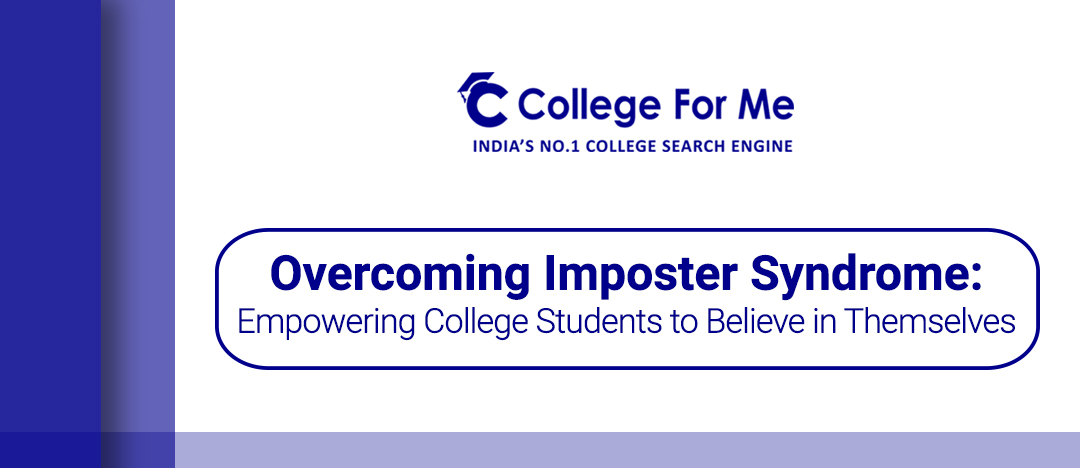Career Scopes Of A B.Tech. Student
There is a high demand for B.Tech. degree holders in the private sector, yet, there is also the opti...

Imposter syndrome, a persistent feeling of inadequacy despite evidence of accomplishments, affects many college students. It can undermine their self-confidence, hinder personal growth, and impede academic success. However, by recognizing and addressing imposter syndrome, college students can develop strategies to overcome it and cultivate a strong sense of self-worth.
This article explores the phenomenon of imposter syndrome among college students and offers empowering strategies to help them believe in themselves and thrive in their academic journey.
Understanding Imposter Syndrome:
Imposter syndrome is a psychological pattern where individuals doubt their abilities, fear being exposed as frauds, and attribute their accomplishments to luck rather than their own competence. College students often experience imposter syndrome due to the demanding nature of higher education and the pressure to succeed. It is crucial for students to realise that imposter syndrome is a common experience and does not reflect their true capabilities.
Recognizing and Challenging Negative Self-Talk:
One of the first steps in overcoming imposter syndrome is to become aware of negative self-talk and self-doubt. College students should learn to recognize when they are engaging in self-deprecating thoughts or undermining their achievements. By challenging these thoughts and replacing them with positive affirmations, students can shift their mindset and build a foundation of self-belief.
Celebrating Achievements and Gratitude:
College students should learn to celebrate their achievements, no matter how small they may seem. By acknowledging their successes, students can reinforce their self-confidence and recognize the effort they have invested in their academic journey. Cultivating a practice of gratitude by reflecting on their strengths and progress can also help combat imposter syndrome and foster a positive mindset.
Seeking Support and Building Connections:
Sharing feelings of self-doubt and imposter syndrome with trusted friends, mentors, or counselors can provide college students with much-needed support and perspective. Seeking guidance from professors, attending support groups, or joining student organizations can create a sense of belonging and reassurance that others share similar experiences. Building connections with like-minded peers can help combat the isolation often associated with imposter syndrome.
Embracing Failure and Learning Opportunities:
College is a time of growth and learning, and setbacks and failures are inevitable. It is essential for students to reframe failures as learning opportunities rather than personal deficiencies. By adopting a growth mindset, college students can embrace challenges, learn from their mistakes, and view setbacks as stepping stones towards success. Understanding that failure is a natural part of the learning process can alleviate the fear of being exposed as an imposter.
Setting Realistic Goals and Managing Expectations:
Imposter syndrome often stems from setting excessively high standards and comparing oneself to others. College students should set realistic goals that align with their abilities and interests, focusing on personal growth rather than external validation. By managing expectations and defining success on their own terms, students can free themselves from the constant need for approval and validation from others.
Conclusion: Imposter syndrome can be a significant obstacle for college students, but it is not an insurmountable one. By understanding the nature of imposter syndrome and implementing empowering strategies, students can overcome self-doubt, cultivate self-belief, and thrive in their college experience. Remember, everyone faces moments of self-doubt, but it is the ability to persevere, embrace growth, and believe in one's capabilities that truly defines success. With determination, self-compassion, and support from others, college students can overcome imposter syndrome and realize their full potential.

There is a high demand for B.Tech. degree holders in the private sector, yet, there is also the opti...

If you are looking for a bright and prospective career, then getting a B.Tech. in CSE must be under ...
Comments (0)